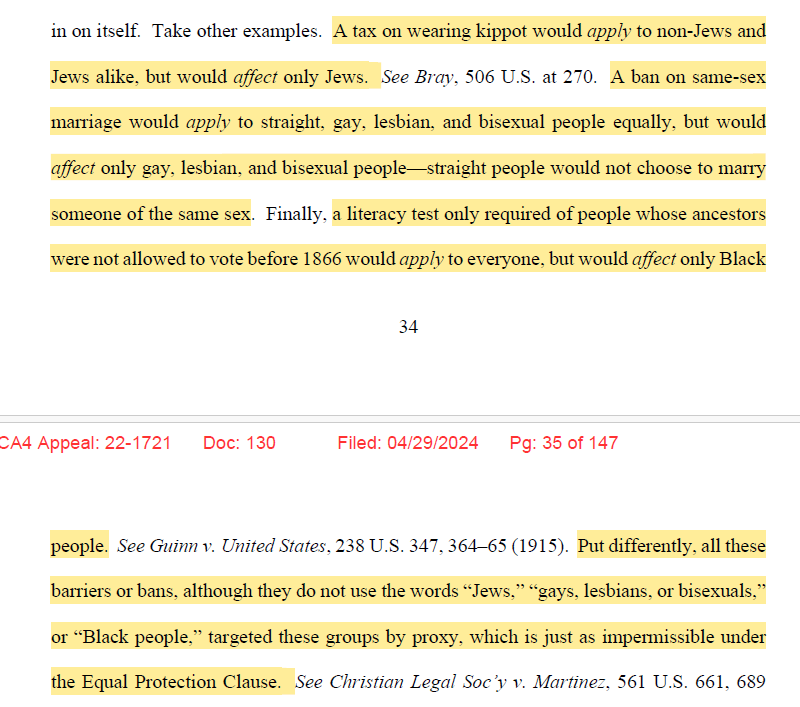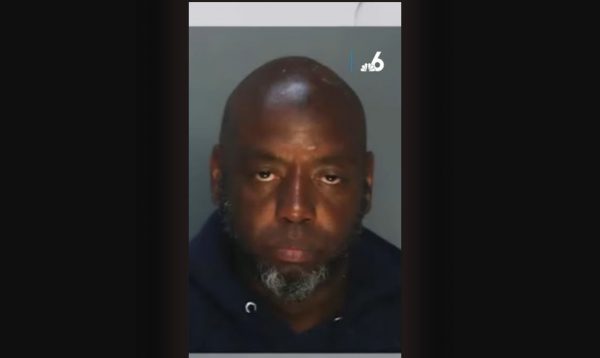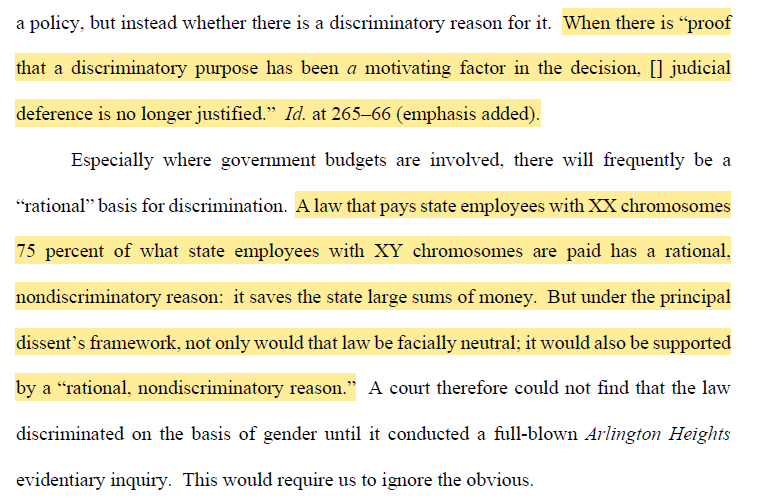National
Senate could take up ‘Don’t Ask’ repeal this month
Lugar says he won’t support efforts to derail vote

U.S. Sen. Richard Lugar (center) said he isn’t concerned about the ‘Don’t Ask, Don’t Tell’ repeal language in the fiscal year 2011 defense authorization bill and wouldn’t support an effort to rid the legislation of the provision. (Photo by Pete Pouza, photo courtesy White House)
As opponents of “Don’t Ask, Don’t Tell” are pushing for the Senate to take up repeal legislation this month, one key senator says he won’t support an attempt to remove the language from a larger defense bill.
U.S. Sen. Richard Lugar (R-Ind.) told the Blade last week that he isn’t concerned about the “Don’t Ask, Don’t Tell” repeal language in the fiscal year 2011 defense authorization bill and wouldn’t support an effort to rid the legislation of the provision.
Asked whether he would support a substitute amendment or a motion to strike, Lugar replied, “No. I would just leave it as it is.”
Lugar said he would “presume” that he would vote against any filibuster of the defense bill as a whole, but expressed concern about the legislation being used as a vehicle for other costly programs unrelated to “Don’t Ask, Don’t Tell.”
“The defense bill, as it stands, seems to me to be a good piece of legislation, but I think the issue was the additions that were not paid for in various other ways,” Lugar said.
Often regarded on Capitol Hill as a centrist Republican, Lugar voted in favor of hate crimes protections legislation after twice backing the Federal Marriage Amendment.
Aubrey Sarvis, executive director of the Servicemembers Legal Defense Network, said Lugar’s comments on “Don’t Ask, Don’t Tell” are “good news.”
“That is consistent with what we have been hearing from his staff,” Sarvis said. “My view is that Sen. Lugar’s response is very encouraging.”
Lugar’s support for allowing the “Don’t Ask, Don’t Tell” repeal language to stay in the defense bill could be a sign the provision would survive the legislative process once it reaches the Senate floor.
On May 27, the Senate Armed Services Committee voted to attach language leading to repeal of “Don’t Ask, Don’t Tell” to the defense bill. But while the repeal language has been attached to the defense bill, a number of obstacles remain that could prevent the “Don’t Ask, Don’t Tell” language from passing in the Senate.
One such obstacle is a filibuster of the defense bill as whole. Additionally, a substitute amendment or a motion to strike could strip the legislation of repeal language.
Mounting a filibuster of the defense bill would take 41 votes in the Senate. Such an effort would be politically challenging because pay for troops and defense programs are included in the larger bill.
A substitute amendment or motion to strike with regard to the “Don’t Ask, Don’t Tell” language would require 51 votes.
Senate Armed Services Committee Chair Carl Levin (D-Mich.), a proponent of “Don’t Ask, Don’t Tell” repeal, cited a filibuster and a motion to strike as potential dangers for the “Don’t Ask, Don’t Tell” language in a brief interview.
“I wouldn’t be surprised if there’s a motion to strike,” he said. “There’s even a threat of a filibuster against the bill.”
Levin said a filibuster of the defense bill is possible based on a number of factors, including “Don’t Ask, Don’t Tell” as well as a provision for funding for legal abortions on military bases.
Sen. John McCain (R-Ariz.), the lead opponent of repeal in the Senate, has threatened to spearhead a filibuster and “do everything” he can to stop repeal language from reaching the president’s desk.
His office didn’t respond to the Blade’s request to comment on whether he’s still pursuing a filibuster or planning a legislative maneuver to strip the “Don’t Ask, Don’t Tell” language from the bill.
Another issue for the defense bill is when the legislation would come up for Senate consideration. Levin said he didn’t know when the bill would reach the floor.
Still, Levin said he wants the Senate to take up the legislation this month. Asked about his predictions for when the defense bill would reach the Senate floor, Levin replied, “Hopefully, we’ll do it in July.”
Sarvis also said the most “immediate challenge” advocates face with the defense authorization bill is finding time for floor discussion. Like Levin, Sarvis noted that he’s hopeful the bill will come up for discussion this month.
“But the floor calendar is very crowded, so I’m not sure we’re going to get on in July,” Sarvis said.
Sarvis said he’s been told the defense bill will need several days for consideration on the floor and the scheduling wouldn’t be “a matter of getting this bill on and off the floor in a day or two.”
A knowledgeable Hill source said Senate consideration of the defense authorization bill could take two weeks before a final vote is cast.
Other senators on Capitol Hill recognized as politically moderate lawmakers have expressed varying degrees of support regarding the “Don’t Ask, Don’t Tell” repeal language.
One is Sen. Jim Webb (D-Va.), the lone Democrat to vote in committee against attaching repeal to the defense bill. He said he didn’t yet know whether he would support a substitute amendment or a motion to strike regarding the “Don’t Ask, Don’t Tell” language.
“I don’t know,” Webb said. “We’ll see what it says.”
Webb noted that his May vote in committee against ending “Don’t Ask, Don’t Tell” was “to delay repeal until we received this report” from the Pentagon, which is due Dec. 1.
“I’ve been very involved in it,” he said. “In terms of putting together the study, I think it’s going to be a great piece of work that’s going out to between three and four hundred thousand people in the military.”
Webb emphasized the importance of the having the study completed before taking action as “a measure of respect” for those in the U.S. military who would implement the repeal process.
Sarvis said he’s heard reports that Webb wouldn’t support a filibuster of the defense authorization bill based on the “Don’t Ask, Don’t Tell” repeal language.
Although Webb voted against the “Don’t Ask, Don’t Tell” language in committee, the senator also voted to report out the legislation as a whole to the Senate floor.
“He’s a member of the committee,” Sarvis said. “Historically, he’s been an advocate for the Defense Department. It would be extraordinary if he objected to Sen. Levin proceeding to a debate on the defense authorization bill.”
Still, Sarvis said his understanding is that Webb would vote to strike the “Don’t Ask, Don’t Tell” language from the defense bill based on his earlier vote against the amendment in committee.
Many repeal advocates also are watching Sen. Mark Warner (D-Va.), the junior senator from the state, to see if he’ll follow suit with Webb on “Don’t Ask, Don’t Tell” when the defense bill reaches the Senate floor.
Kevin Hall, a Warner spokesperson, said via e-mail the senator is watching the process for how “Don’t Ask, Don’t Tell” will be repealed.
“Sen. Warner supports repeal of “Don’t Ask, Don’t Tell” in an orderly way, working with members of the uniformed services and our military leadership,” Hall said.
Hall said Warner wouldn’t support a filibuster of the defense authorization bill. Regarding whether the senator would support a substitute amendment or a motion to strike the “Don’t Ask, Don’t Tell” language, Hall said he’d “let our previous statement speak for itself.”
Another moderate senator who’s reportedly opposed to filibuster is Sen. Scott Brown (R-Mass.). He voted against attaching repeal to the larger defense bill, but voted in favor of reporting the legislation as a whole to the floor.
“Filibuster’s never — it’s not my style. I want to make sure that we have a full and fair debate on it,” Brown was quoted as saying in May in a Boston Globe article.
Other senators that activists have discussed as being in question on whether they would support repeal of “Don’t Ask, Don’t Tell” are Sens. George Voinovich (R-Ohio), Mark Pryor (D-Ark.) and Blanche Lincoln (D-Ark.). Their offices didn’t respond to the Blade’s request for comment.
Federal Government
4th Circuit rules gender identity is a protected characteristic
Ruling a response to N.C., W.Va. legal challenges

BY ERIN REED | The 4th U.S. Circuit Court of Appeals ruled Monday that transgender people are a protected class and that Medicaid bans on trans care are unconstitutional.
Furthermore, the court ruled that discriminating based on a diagnosis of gender dysphoria is discrimination based on gender identity and sex. The ruling is in response to lower court challenges against state laws and policies in North Carolina and West Virginia that prevent trans people on state plans or Medicaid from obtaining coverage for gender-affirming care; those lower courts found such exclusions unconstitutional.
In issuing the final ruling, the 4th Circuit declared that trans exclusions were “obviously discriminatory” and were “in violation of the equal protection clause” of the Constitution, upholding lower court rulings that barred the discriminatory exclusions.
The 4th Circuit ruling focused on two cases in states within its jurisdiction: North Carolina and West Virginia. In North Carolina, trans state employees who rely on the State Health Plan were unable to use it to obtain gender-affirming care for gender dysphoria diagnoses.
In West Virginia, a similar exclusion applied to those on the state’s Medicaid plan for surgeries related to a diagnosis of gender dysphoria. Both exclusions were overturned by lower courts, and both states appealed to the 4th Circuit.
Attorneys for the states had argued that the policies were not discriminatory because the exclusions for gender affirming care “apply to everyone, not just transgender people.” The majority of the court, however, struck down such a claim, pointing to several other cases where such arguments break down, such as same-sex marriage bans “applying to straight, gay, lesbian, and bisexual people equally,” even though straight people would be entirely unaffected by such bans.
Other cases cited included literacy tests, a tax on wearing kippot for Jewish people, and interracial marriage in Loving v. Virginia.
See this portion of the court analysis here:

Of particular note in the majority opinion was a section on Geduldig v. Aiello that seemed laser-targeted toward an eventual U.S. Supreme Court decision on discriminatory policies targeting trans people. Geduldig v. Aiello, a 1974 ruling, determined that pregnancy discrimination is not inherently sex discrimination because it does not “classify on sex,” but rather, on pregnancy status.
Using similar arguments, the states claimed that gender affirming care exclusions did not classify or discriminate based on trans status or sex, but rather, on a diagnosis of gender dysphoria and treatments to alleviate that dysphoria.
The majority was unconvinced, ruling, “gender dysphoria is so intimately related to transgender status as to be virtually indistinguishable from it. The excluded treatments aim at addressing incongruity between sex assigned at birth and gender identity, the very heart of transgender status.” In doing so, the majority cited several cases, many from after Geduldig was decided.
Notably, Geduldig was cited in both the 6th and 11th Circuit decisions upholding gender affirming care bans in a handful of states.
The court also pointed to the potentially ridiculous conclusions that strict readings of what counts as proxy discrimination could lead to, such as if legislators attempted to use “XX chromosomes” and “XY chromosomes” to get around sex discrimination policies:
Importantly, the court also rebutted recent arguments that Bostock applies only to “limited Title VII claims involving employers who fired” LGBTQ employees, and not to Title IX, which the Affordable Care Act’s anti-discrimination mandate references. The majority stated that this is not the case, and that there is “nothing in Bostock to suggest the holding was that narrow.”
Ultimately, the court ruled that the exclusions on trans care violate the Equal Protection Clause of the Constitution. The court also ruled that the West Virginia Medicaid Program violates the Medicaid Act and the anti-discrimination provisions of the Affordable Care Act.
Additionally, the court upheld the dismissal of anti-trans expert testimony for lacking relevant expertise. West Virginia and North Carolina must end trans care exclusions in line with earlier district court decisions.
The decision will likely have nationwide impacts on court cases in other districts. The case had become a major battleground for trans rights, with dozens of states filing amicus briefs in favor or against the protection of the equal process rights of trans people. Twenty-one Republican states filed an amicus brief in favor of denying trans people anti-discrimination protections in healthcare, and 17 Democratic states joined an amicus brief in support of the healthcare rights of trans individuals.
Many Republican states are defending anti-trans laws that discriminate against trans people by banning or limiting gender-affirming care. These laws could come under threat if the legal rationale used in this decision is adopted by other circuits. In the 4th Circuit’s jurisdiction, West Virginia and North Carolina already have gender-affirming care bans for trans youth in place, and South Carolina may consider a similar bill this week.
The decision could potentially be used as precedent to challenge all of those laws in the near future and to deter South Carolina’s bill from passing into law.
The decision is the latest in a web of legal battles concerning trans people. Earlier this month, the 4th Circuit also reversed a sports ban in West Virginia, ruling that Title IX protects trans student athletes. However, the Supreme Court recently narrowed a victory for trans healthcare from the 9th U.S. Circuit Court of Appeals and allowed Idaho to continue enforcing its ban on gender-affirming care for everyone except the two plaintiffs in the case.
Importantly, that decision was not about the constitutionality of gender-affirming care, but the limits of temporary injunctions in the early stages of a constitutional challenge to discriminatory state laws. It is likely that the Supreme Court will ultimately hear cases on this topic in the near future.
Celebrating the victory, Lambda Legal Counsel and Health Care Strategist Omar Gonzalez-Pagan said in a posted statement, “The court’s decision sends a clear message that gender-affirming care is critical medical care for transgender people and that denying it is harmful and unlawful … We hope this decision makes it clear to policy makers across the country that health care decisions belong to patients, their families, and their doctors, not to politicians.”
****************************************************************************

Erin Reed is a transgender woman (she/her pronouns) and researcher who tracks anti-LGBTQ+ legislation around the world and helps people become better advocates for their queer family, friends, colleagues, and community. Reed also is a social media consultant and public speaker.
******************************************************************************************
The preceding article was first published at Erin In The Morning and is republished with permission.
National
GLSEN hosts Respect Awards with Billy Porter, Peppermint
Annual event aims to ‘inspire a lot of people to get active’

GLSEN will host its annual Respect Awards April 29 in New York, with guests including Miss Peppermint and Billy Porter.
Respect Awards director Michael Chavez said that the event will be moving.
“It will inspire a lot of people to get active and take action in their own communities and see how much more work there is to do, especially with all of the harmful things happening,” he said.
At the event, they will recognize the Student Advocate of the Year, Sophia T. Annually, GLSEN recognizes a student from around the country who is impacting their community.
“Sophia is doing incredible work advocating for inclusive sex education that is LGBTQ+ affirming, working with Johns Hopkins University to implement curriculum.” Chavez said.
Chavez calls the students that attend the Respect Awards the “biggest celebrities” of the evening.
“It is really important for the adults, both the allies and the queer folks, to hear directly from these queer youth about what it’s like to be in school today as a queer person,” he said.
GLSEN is a queer youth advocacy organization that has been working for more than 30 years to protect LGBTQ youth.
“GLSEN is all hands on deck right now, because our kids are under direct attack and have been for years now,” said actor Wilson Cruz.
Cruz is the chair of GLSEN’s National Board, which works to fundraise and strategize for the organization.
“I think we are fundamental to the education of LGBTQ students in school,” he said. “We advocate for more comprehensive support at the local, national, and federal levels so our students are supported.”
Chavez is one of the students that was impacted by this work. He led his school’s GSA organization and worked with GLSEN throughout his youth.
Cruz said Chavez is doing what he hopes today’s GLSEN students do in the future, which is pay the work forward.
“There’s nothing more powerful than people who have experienced the work that GLSEN does and then coming back and allowing us to expand on that work with each generation that comes forward,” he said.
Florida
Homeless transgender woman murdered in Miami Beach
Andrea Doria Dos Passos attacked while she slept

Gregory Fitzgerald Gibert, 53, who was out on probation, is charged with the second-degree murder of 37-year-old Andrea Doria Dos Passos, a transgender Latina woman who was found deceased in front of the Miami Ballet company facility by a security guard this past week.
According to a Miami Beach Police spokesperson the security guard thought Dos Passos was sleeping in the entranceway around 6:45 a.m. on April 23 and when he went to wake her he discovered the blood and her injuries and alerted 911.
She was deceased from massive trauma to her face and head. According to Miami Beach police when video surveillance footage was reviewed, it showed Dos Passos lying down in the entranceway apparently asleep. WFOR reported: In the early morning hours, a man arrived, looked around, and spotted her. Police said the man was dressed in a black shirt, red shorts, and red shoes.
At one point, he walked away, picked up a metal pipe from the ground, and then returned. After looking around, he sat on a bench near Dos Passos. After a while, he got up and repeatedly hit her in the head and face while she was sleeping, according to police.
“The male is then seen standing over her, striking her, and then manipulating her body. The male then walks away and places the pipe inside a nearby trash can (the pipe was found and recovered in the same trash can),” according to the arrest report.
Police noted that in addition to trauma on her face and head, two wooden sticks were lodged in her nostrils and there was a puncture wound in her chest.
Victor Van Gilst, Dos Passos’s stepfather confirmed she was trans and experiencing homelessness.
“She had no chance to defend herself whatsoever. I don’t know if this was a hate crime since she was transgender or if she had some sort of interaction with this person because he might have been homeless as well. The detective could not say if she was attacked because she was transgender,” said Van Gilst.
“She has been struggling with mental health issues for a long time, going back to when she was in her early 20s. We did everything we could to help her. My wife is devastated. For her, this is like a nightmare that turned into reality. Andrea moved around a lot and even lived in California for a while. She was sadly homeless. I feel the system let her down. She was a good person,” he added.

The Miami Police Department arrested Gibert, collected his clothing, noting the red shorts were the same type in the video and had blood on them. Blood was also found on his shoes, according to police. He was taken into custody and charged.
“The suspect has an extensive criminal record and reportedly was recently released from custody on probation for prior criminal charges. Police apprehended the suspect in the city of Miami and the investigation is currently ongoing. This case is further evidence that individuals need to be held accountable for prior violent crimes for the protection of the public. We offer our sincere condolences to the family and friends of the victim,” Miami Beach Mayor Steve Meiner said in a statement.
Joe Saunders, senior political director with LGBTQ rights group Equality Florida, told the Miami Herald that “whenever a transgender person is murdered, especially when it is with such brutality, the question should be asked about whether or not this was a hate-motivated crime.”





















